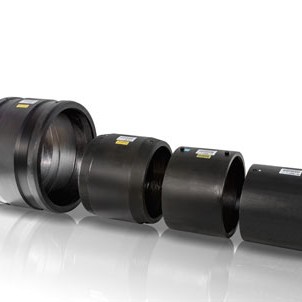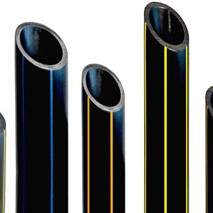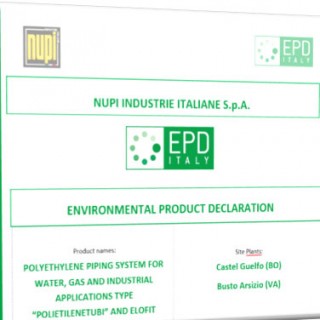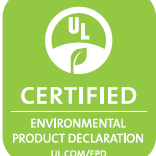NUPI INDUSTRIE ITALIANE AND ENVIRONMENTAL SUSTAINABILITY
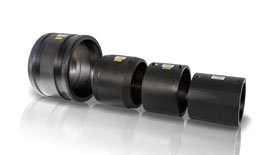
NUPI INDUSTRIE ITALIANE S.p.A. is proud to announce that it has obtained the second EPD (Environmental Product Declaration) certification for its high-density polyethylene pipe and fitting system for the underground transport of fluids under pressure, called POLIETILENETUBI and ELOFIT. After the success obtained with the first EPD obtained for the NIRON and POLYSYSTEM piping ranges, NUPI proceeded to support the importance that these documents have today within the context of its commitment towards the environmental sustainability of its products.
What is EPD?
EPD, also known as a Type III environmental declaration, in accordance with EN ISO 14125, is a declaration verified by an independent body, which communicates the environmental performances of the products throughout their life cycle in an objective and transparent way. Having an EPD allows professionals to choose products that meet specific sustainability criteria, necessary for the design of buildings from a Smart and Green Building point of view.
Benefits of an EPD:
- The producer can declare the environmental sustainability of its product.
- The designer can evaluate the environmental sustainability of the building according to LCA methodology.
- The consumer can receive verified information about the environmental performance of a building product, that are extracted and elaborated starting from EPD.
The Contents of an EPD
EPD expresses the following environmental parameters regarding the life cycle of a product/service, i.e.:
Environmental impacts:
- Global warming
- Destruction/reduction of the ozone layer
- Acidification
- Eutrophication
- Photochemical ozone formation
- Consumption of fossil and non-fossil resources
Use of environmental resources and waste production:
- Consumption of fossil resources
- Consumption of renewable resources
- Use of secondary raw materials (recycling)
- Use of secondary renewable and non-renewable fuels
- Consumption of water resources
- Waste production (hazardous and non-hazardous)
Its contents are mainly aimed at industrial and commercial users of the product and allow to improve environmental communication between producers on the one hand (business to business), and distributors and consumers on the other (business to consumers).
Through a careful analysis and interpretation of the results obtained on its products, NUPI Industrie Italiane can:
• increase/optimize product recyclability and use of materials and processes with low environmental impact, optimize end-of-life management, packaging and distribution of the finished product, production processes by implementing technological solutions aimed at energy efficiency.
• reduce/minimize use of toxic materials and/or substances, use of energy-intensive raw materials, waste production, consumption of energy carriers (water, fuel gas, electricity).
Advantages of a specific EPD – from the Cradle to the Grave
Obtaining a specific product EPD, such as the one obtained for POLIETILENETUBI and ELOFIT, rather than a category/sector EPD, allows obtaining the maximum score/credit in environmental sustainability protocols (such as LEED) that are nowadays very common in the construction sector.
Since the market interested in receiving the EPD of NUPI products is international, the EPDs obtained comply and will comply with EN 15804 and, in addition, will contain the TRACI indicators, required by the American market.
The EPD of POLIETILENETUBI and ELOFIT is the first specific product EPD of the from cradle to grave type for a polyethylene pipe and fitting system. The environmental impacts are therefore calculated from the extraction of the raw materials up to the end of the life of the product itself, passing through the use and maintenance phase and including possible scenarios of reuse, recovery and recycling.
Results obtained and their interpretation
The functional unit chosen is represented by 100 meters of POLIETILENETUBI underground pipes (DN 110 mm, SDR 17) and ELOFIT fittings for the distribution of underground fluids under pressure, both made of high-density polyethylene. A rectilinear distribution line that starts from the distribution system and arrives directly to the building meter has been considered (including a flanged coupler and a threaded coupler at the ends and considering electrofusion joining of the pipe sticks).
NUPI intended to communicate to the market the environmental impact of its products through the EPD, which is a document that includes verified, transparent and comparable information.
Since the impact categories are multiple and wanting top focus on the most renowned in common parlance, i.e. on Global Warming (GWP) expressed in kg of CO2 emitted in the atmosphere, it is possible to affirm that the environmental impact of NUPI piping system shows far lower values when compared to pipes made of traditional materials, in particular metallic materials. In this case, we shall consider 80% less if compared to a similar system made of carbon steel.
If we analyze instead what contributes the most to creating the impact of global warming, it is possible to affirm that the greatest impact can be attributed, first of all, to the consumption of the raw material used for the production of pipes and fittings (45%) and, secondly, to the underground installation of the piping itself (25%).
Standard EN 15804:2019 has undergone major changes following the goals set by the 2030 Agenda for sustainable development and the implementation of a circular economy vision in all sectors (design, production and services). To date, EPD including all modules relating to the life cycle with a from cradle to grave scenario, has become mandatory for the construction sector, with only a few exceptions. NUPI was a forerunner of this scheme and EPD of POLIETILENETUBI and ELOFIT system will therefore always be valid or at least in line with this vision.
International visibility
The EPD of POLIETILENETUBI and ELOFIT system, analyzed and validated by ICMQ, is now published on EpdItaly (the Italian program operator) website and on Eco Platform (the European platform that collects all the EPDs of all program operators). Furthermore, as proof of its international value and thanks to the mutual recognition among Program Operators, it has also been recognized, approved and published by UL Environment (SPOT UL website) and will soon be by Aenor as well.

